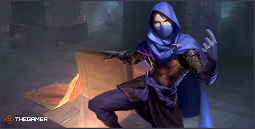Voicing an NPC in Dungeons & Dragons
Voicing an NPC in Dungeons & Dragons can be intimidating. There’s nothing quite like the pressure of having to deliver a well-developed character with a believable voice.
But it’s a relatable feeling. Doing voices is just something that some people are better at than others, and it’s difficult to know how to get better. That’s why we’ve put together these eight tips for voicing Dungeons & Dragons characters for your next session.
Practice makes perfect
Just like any other D&D character, voicing an NPC takes practice. Start with basic accents, like English regional ones or character voice inspirations. Once you feel comfortable with that, move onto more complicated characters, like fictional ones or famous voice actors. If you’re just starting out, try not to take criticism of your voice too personally – it’s a skill that can be developed over time.
Consider the weight of the voice you want to try. Do you want a character that sounds like they’re constantly on the verge of a sneeze, or someone with a hefty, authoritative tone? Consider the consonants and vowels you’ll use and how they’ll affect your speech. Focus on timing and enunciation to add texture and uniqueness to your NPC voices.
Practice regularly, talking to yourself and reading aloud. This will help develop your vocal range and DM confidence.
Think about body language
Just as you would when playing a character in-game, pay attention to the body language of the character you’re voicing. The way a person holds themselves conveys a lot about their personality and confidence, so it can naturally enhance your voice acting.
Quirks in a character’s voice, such as repeated words or mispronunciations, can add depth to their speech pattern. This is especially important for characters with disabilities or those who are speaking a different language.
As you learn to perfect your voices, quirks can help your players differentiate between similar-sounding NPCs.
Learn languages
Naturally, learning another language helps with employing different accents for characters. Duolingo and the internet make learning languages and accents easier than ever before. Not only can this give you more confidence to try out different voices, but it also helps you pronounce difficult words better.
This is especially helpful when playing a new race that has a language you’re unfamiliar with.
Practice accents
As you work on perfecting your normal voices, you can start to work on accents, too. Just like the practice tips above, start with the basics, then move onto more complicated ones. You could even make flashcards to help you remember your favourite accents.














